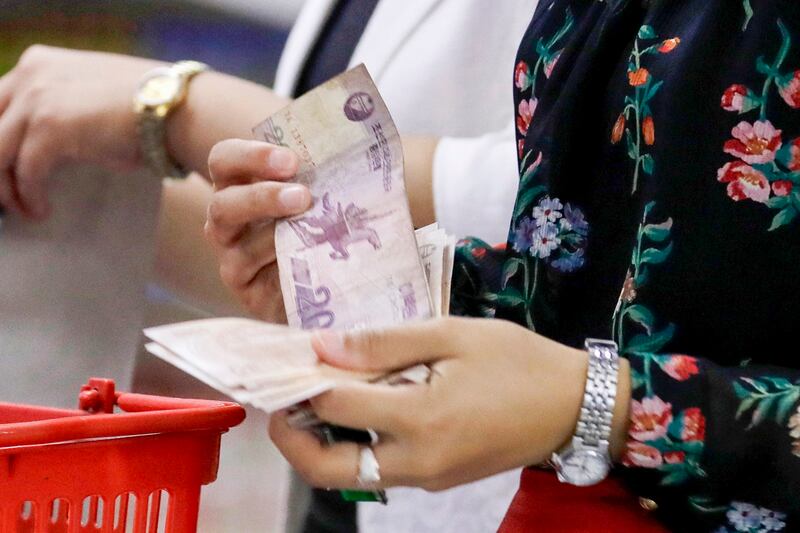North Korea is warning private money changers that the government will confiscate their foreign and domestic currency if they change U.S. dollars into North Korean won at a rate significantly higher than official rates at banks.
The move is aimed at stabilizing the exchange rate between the dollar and the won, which has been skyrocketing recently. Until last summer, the rate hovered around 8,000 won per dollar but now it is around 13,000 or 14,000 on the black market.
State-run banks, meanwhile, offer 8,900 won per dollar.
Even though North Korea is largely cut off from trade with the United States, the dollar, along with the Chinese yuan, are the preferred currencies of the people due to their relative stability compared to the won.
In 2009, the country suddenly revalued its currency, and then limited the amount of old won people were allowed to exchange for new won. The revaluation wiped out the life savings of many, and it led to an increased reliance on foreign currency.

Faith in the won is still on flimsy ground, but when it is used its value is always thought of in terms relative to these foreign currencies.
Since much of the North Korean economy is dependent on trading goods either smuggled or imported from China, and these naturally cost more when the exchange rate is higher.
“Instructions to use national banks and foreign currency exchange offices when changing foreign currency are repeatedly announced at meetings at factories morning meetings and neighborhood-watch units,” a resident of the northeastern city of Rason, who requested anonymity for personal safety, told RFA Korean.
The currency confiscation measure for those caught changing money privately was announced at the most recent neighborhood watch unit meetings, she said.
"The names, workplaces, and home addresses of those who were arrested for secretly exchanging foreign currency in violation of the party's policy are being made public," she said, adding that the information about arrestees is blared over loudspeakers for all to hear.
She said a major crackdown on money changers is underway.
“They were active on the streets and at entrances of marketplaces, but they have not been coming out these days,” she said.
The soaring exchange rate coincided with the post-COVID resumption of trade with China last summer, a resident from Rason’s surrounding North Hamgyong province told RFA on condition of anonymity to speak freely.
"It is also rising rapidly after the announcement of salary increases for workers this year," he said, adding that it was reminiscent of 2002, another time that salaries rose sharply. "As monthly wages increased in 2002, the dollar exchange rate, which was around 200 won, rose to over 1,000 won. The price of rice, which was around 45 won per kilogram (2.2 pounds), rose almost 10 times."
The rate shows no signs of slowing its increase, he said.
“It is clear that the dollar exchange rate and product prices will rise further in the future,” he said. “It’s good for the rich but it makes life more difficult for the poor, which is most of the people.”
Translated by Claire S. Lee. Edited by Eugene Whong and Malcolm Foster.
